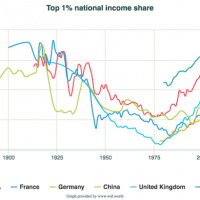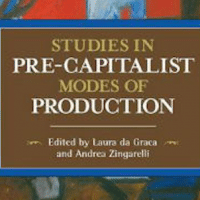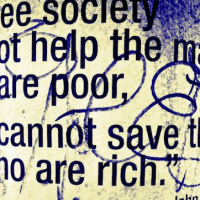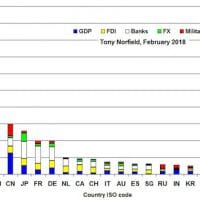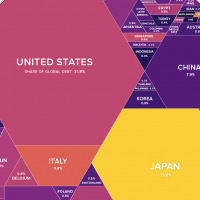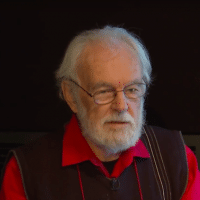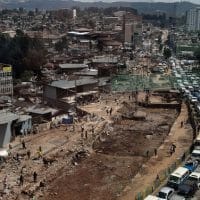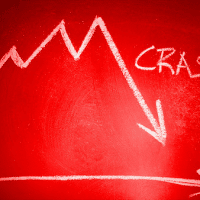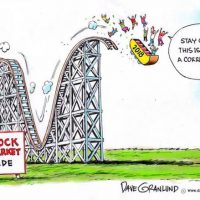-
The political economy of space and time in Eduardo Galeano
Uruguyan novelist and historian Eduardo Galeano (1940–2015) wrote more than 40 books. Monthly Review lauded his creative non-fiction Open Veins of Latin America: Five Centuries of the Pillage of a Continent (1973[1971]) as ‘outstanding political economy … and perhaps the finest description of primitive capital accumulation since Marx’.
-
Finding ways to be one: The making of Cedric J. Robinson’s radical Black politics.
Historian Robin D.G. Kelley explores the radical Black politics of scholar Cedric J. Robinson—from his historical understanding of race and capitalism as inherently inseparable systems, to his vision of the possibilities of politics, rooted deep in struggles past and present.
-
Utopia and inequality
Economic inequality is arguably the crucial issue facing contemporary capitalism—especially in the United States but also across the entire world economy.
-
Janus and fair share fees
Over the last decade, a number of cases attacking the rights of public-sector union members have been quietly working their way through the courts and, finally, up to the U.S. Supreme Court.
-
Why is there always an economic crisis of some sort?
Unlike liberal economists, Marxists explore the primary role of internal contradictions within the capitalist economy. The MARX MEMORIAL LIBRARY explains why.
-
Studies in pre-capitalist modes of production
Marxism is not simply a form of anti-capitalism, but is a theory of the social and historical nature of humanity. Capitalism was understood by Marx to be a specific historical phase, in which the cycles and tendencies of human activity are qualitatively different than in previous periods, each of which had their own specificity.
-
Are intersectionalism or Afro-Pessimism paths to power? (Part 3 of 3)
In parts one and two of this series I’ve talked about the fact that there are two conflicting versions of intersectionality, one employed by some honest to god leftists who reach backward across decades to ventriloquize the term into the mouths of the Cohambee comrades, of Audre Lord, even of Claudia Jones and Sojourner Truth, and how this exists alongside another, hegemonic version of intersectionality deployed by the corporate funded lawyers, media and the nonprofit sector which invented the term in the first place for reasons Cohambee or Claudia Jones would never touch.
-
We’re #2!
According to the Tax Justice Network, the United States ranks second in the 2018 Financial Secrecy Index. This is based on a secrecy score of 59.8, which is practically unchanged from 2015. The only country ahead of the United States is Switzerland, with a secrecy score of 76. The rise of the United States continues a long-term trend, as the country was one of the few to increase their secrecy score in the 2015 index.
-
Neoliberalism’s populist bastards
After the twin victories of Brexit and Trump in 2016, observers across the political spectrum described a face-off between populism and neoliberal globalism. Davos Man, we were told, stood shamed before the wrath of the masses. In a series of electoral defeats for the center and left, the world’s elites were reaping the fruits of the inequality and democratic disempowerment they had sown.
-
Index of power
he overall picture shows a small number of countries, led by the U.S., towering over the rest. Only 33 countries out of 180 have an index that is more than 1% of the U.S. index number! In the chart, the columns for these would look like the x-axis, so I have shown just the top 20 countries. Of those, only five are close to or above 20% of the U.S. number: the UK, China, Japan, France and Germany.
-
Not a matter of if, but when
The capitalist crisis will deepen as new bubbles created by easy money begin to burst.
-
What does China’s ‘ecological civilization’ mean for humanity’s future?
Imagine a newly elected president of the United States calling in his inaugural speech for an “ecological civilization” that ensures “harmony between human and nature.” Now imagine he goes on to declare that “we, as human beings, must respect nature, follow its ways, and protect it” and that his administration will “encourage simple, moderate, green, and low-carbon ways of life, and oppose extravagance and excessive consumption.”
-
Introduction to the material constitution
In a couple of previous posts on Legal Form, Rob Hunter has reminded us of the importance and aptness of a Marxist approach to the analysis of public law. Hunter’s intervention could not be more timely: even after the economic and financial crisis, and despite the comeback of Marxism as a relevant intellectual source at least within certain legal domains (think, for example, of international law) [1], there has not yet been a Marxist revival in constitutional studies. One possible explanation for this phenomenon (though likely not the only one) is the discredit and almost total obliteration of the best-known Marxist contribution to constitutional studies: Lassalle’s notion of the material constitution.
-
Marx for the 21st century with David Harvey
Marx’s ‘Capital’ is one of the most important texts of the modern era and continues to resonate today. Professor David Harvey, the world’s leading expert on Karl Marx, explains the continued importance of Marx’s analysis and how we can apply it to today’s economy and society.
-
The African Anthropocene
Every year, human activity moves more sediment and rock than all natural processes combined, including erosion and rivers. This might not shock you. In fact, you’ve probably seen similar soundbites circulating online, signals of the sheer scale of how we’re terraforming the planet in the era of the Anthropocene. Natural and social scientists argue passionately about almost everything Anthropocenic, from the nuances of nomenclature to the start-date of the new geological epoch, but most agree on one thing: the Earth will outlive humanity. What’s in doubt is how long we will populate the planet, and under what conditions.
-
Trump sycophants explain the stock market drop
Friday and Monday the stock market took a huge drop and Trump’s opponents went a little mental over it. That’s really not very interesting, stock markets drop from time to time for all kinds of reasons. What makes it in any way relevant is that Trump continually claims credit for the market having gone up since he took office, even though it’s gone up steadily for almost a decade now. And that means Trump’s sycophants have to find some explanation for it. Let the fun begin with Sean Hannity, who of course blames it on Obama:
-
NYT joins campaign to purge the term, “white monopoly capital” in South Africa
The New York Times, the world’s premier journalistic purveyor of a “fake,” imperial, and profoundly white capitalist world view — masquerading as all the news that’s fit to print — wants us to believe that a now-bankrupt London-based public relations firm is behind South Africa’s regime-shaking debate over the rule of “white monopoly capital.”
-
Trump’s new dark money man takes over
During her last news conference in December, Janet Yellen stood firm on her record stating, “The global economy is doing well. We’re in a synchronized expansion. This is the first time in many years that we’ve seen this.”
-
World stock market turmoil – prepare for a rough ride
Despite all the euphoria in the past period about the world recovery and booming stock markets, events have taken a sharp turn for the worse. Over the past week, stock markets around the world have plunged.
-
What goes up…
Take the stock market, for example. Last Friday, the Dow Jones Industrial Average closed down 666 points, or 2.5 percent, its biggest percentage decline since the Brexit turmoil in June 2016 and the steepest point decline since the 2008 financial crisis.



